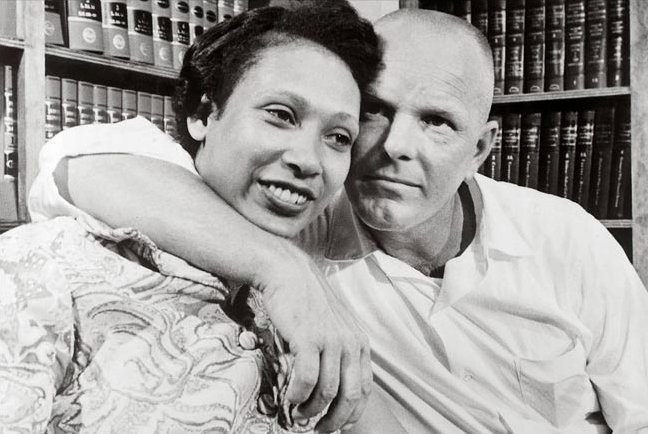By Jason Hines –

I find “The Help” to be the supposedly heartwarming story of a White woman (Skeeter) who comes of age off of the pain and suffering of Black people. She struggles for these unheard Black women in a town where a lot of people surprisingly love Black women, but do not have the courage to speak up for them. Skeeter then becomes the only one who has the bravery to attempt to do something for these poor Black women who are too scared and beaten down by life to do for themselves. They in return empower Skeeter to be the woman that she is supposed to be, and to go live the life in New York that she wanted, but was not good enough to achieve at the beginning of the movie.I did not find anything particularly redeeming about this movie. The premise itself bothers me. Actually viewing the movie did not change any of that for me. The most difficult part for me, was to separate my feelings about the era itself with the elements of the movie that are flagrantly not based in the reality of the era. Even if this film had been amazingly done, it would still have been an upsetting movie simply because of the story it attempts to tell. However, it is even more revolting because of its massive failure to correctly tell the story.
There are elements of the story that seem so ahistorical that I was unable to suspend my disbelief, and almost all of them were upsetting.While there is some basis of the racism of Hilly (the antagonist) her mean girl actions throughout the movie obscure the racism and segregation that underlie her actions (if it is even really racism that motivates her). I must admit that I was unsure by the end of the movie about whether Hilly was a racist or if she hated her own life, or if she was mad because she did not marry the man she really wanted. The most obviously problematic storyline was Minnie (Hilly’s first maid) and the feces pie. I do not understand how the writers of this movie expected me to believe that a Black maid could feed a White woman feces and the only repercussion would be that she would be beaten by her Black husband. I guess that makes for a good story, but there is very little possibility that Minnie would be able to do that type of thing and not die as a result.
But there is a macro-level problem with this story as a whole which I alluded to earlier. The movie explicitly establishes Skeeter as the protagonist, the person who we are supposed to be rooting for. However, she does things that I find to be unconscionable. First she gets a maid (Abilene) to write her column for her. First, she just asks for assistance, but we see later in the film that while Skeeter is working on the book, Abilene is writing her column. Am I supposed to be ok with that? Secondly, Skeeter is the only person who gets anything good out of her relationship with these maids. Skeeter gets what she wanted at the beginning of the film – a job with a New York publishing firm. Abilene ends up fired with no prospects on how she would support herself. But she feels good about herself so I guess it’s alright. This is dovetailed with the very odd resolution of Minnie’s story, where she finds the strength to leave her abusive husband because her white employer cooked a meal for her. I’m sorry but that doesn’t make sense to me.
In the end, I find this movie to be a whitewash of a very compelling story in a difficult time in American history. Racism and segregation are not portrayed as the evil, insidious institutions that they are, but are depicted instead as the result of catty White women attempting to maintain their place within their own social hierarchy. Furthermore, Toure, in his belated review of “The Help,” discussed the idea of the magical Negro, so I won’t get into too much of it here. But I will say that I highly doubt that a White toddler needed her Black maid to remind her, “You is kind, you is smart, you is important.” It would’ve made better sense if the child said it to the maid.
And it is the whitewashing of history that bothers me the most and has the potential to have lasting impact. In the HBO comedy documentary “Assume the Position,” Robert Wuhl makes the point that history is pop culture. Pop culture is the reason why so many children were taught that Columbus sailed west to prove the world was round. Pop culture is the reason why Paul Revere, who rode 19 miles, is more famous than Israel Bissel, who rode 345 miles to warn the colonists of the British attack. Pop culture is the reason why the play and movie “Inherit the Wind” have had a greater effect on how we view creation and evolution than the actual Scopes Monkey Trial that took place in 1925. “The Help” bothers me because it has the potential to shape the way that a generation, unconnected from Jim Crow and the Civil Rights Movement, views this dark time in American history. Instead of seeing the pain, heartache, and hardship that these women experienced, they will instead see segregation as a mild irritant, propagated mostly by White women, that bothered the Whites in the South as much as it bothered the oppressed (if not more so). They will think that these situations could be solved only through the well-meaning actions of White people who were not only sympathetic, but catalysts for the cause. Lost will be the true history of the suffering and oppression that Black people experienced.
If you doubt me, come to the South, where they have gone back to calling the indigenous people of this land American Indians so that White people can be known as “Native Americans.” Or where they are fighting to change history textbooks to deemphasize the brutality of slave-owners and the Jim Crow South. This whitewashing of history is already happening, and “The Help” is not helping.
 A Harvard Law graduate, Jason Hines practiced commercial litigation in Philadelphia for five years and conducted seminars on religious liberty in his spare time. This gave him the opportunity to discuss issues of religious freedom with Adventists in churches all over the United States. In 2008, Jason decided to devote his life to work in religious liberty. To that end, he enrolled at the Seminary at Andrews University, where he is pursuing a Master’s Degree in Religion. He is also a PhD candidate in the Religion, Politics, and Society at the J.M. Dawson Institute for Church-State Studies at Baylor University. Jason blogs about religious liberty and other religious issues at thehinesight.blogspot.com and is also an associate editor of ReligiousLiberty.TV, an independent religious liberty website.
A Harvard Law graduate, Jason Hines practiced commercial litigation in Philadelphia for five years and conducted seminars on religious liberty in his spare time. This gave him the opportunity to discuss issues of religious freedom with Adventists in churches all over the United States. In 2008, Jason decided to devote his life to work in religious liberty. To that end, he enrolled at the Seminary at Andrews University, where he is pursuing a Master’s Degree in Religion. He is also a PhD candidate in the Religion, Politics, and Society at the J.M. Dawson Institute for Church-State Studies at Baylor University. Jason blogs about religious liberty and other religious issues at thehinesight.blogspot.com and is also an associate editor of ReligiousLiberty.TV, an independent religious liberty website.

Very well said. Thank you for this reiteration of how pop culture’s false memories are reshaping history for the worse. All the more important with awards season here!
Oh Jason–I didn’t want to like your column because I liked this book. Sigh…I’m afraid I’m going to have to rethink a few things. Your point about history being pop culture is extremely salient.
Sometimes a story is just a story, and a movie is just a movie. Period.
Nice post and it would be great for everyone, Thanks a lot for spreading this information here.